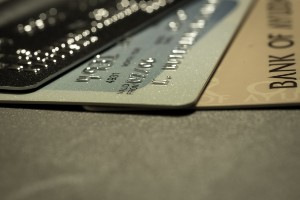
What do divorcing couples need to know about credit card debt?
Understanding Credit Card Debt in Divorce
Credit card debt acquired during a marriage is typically considered marital debt in Florida. This is regardless of which spouse’s name is on the account. This means that both spouses may be responsible for repaying the debt, regardless of who incurred it.
During divorce proceedings, marital assets, and debts are subject to equitable distribution, meaning they are divided fairly but not necessarily equally.
Equitable Distribution of Credit Card Debt in Florida
In Florida, equitable distribution does not necessarily mean a 50/50 split of marital assets and debts.
Instead, the court considers various factors when dividing property and debt. These factors include the duration of the marriage, each spouse’s financial circumstances, and contributions to the marriage. The division of credit card debt in a Florida divorce may vary depending on the specific circumstances of the case.
Options for Handling Credit Card Debt in Divorce
There are several ways credit card debt can be addressed during divorce proceedings in Florida:
- Negotiated settlement: Spouses can negotiate a settlement agreement that specifies how credit card debt will be divided. This may involve one spouse assuming responsibility for certain debts while the other takes on additional assets to offset the debt.
- Court decision: If spouses are unable to reach a mutually agreeable settlement, the court may intervene. It will decide the division of credit card debt. The court will consider factors such as each spouse’s ability to pay, the nature and amount of the debt, and any other relevant circumstances.
- Debt repayment plan: In some cases, spouses may agree to continue making payments on joint credit card accounts until the debt is fully repaid. This can be a practical solution if both spouses are financially capable of contributing to the debt repayment.
Protecting Your Credit During Divorce
Regardless of how credit card debt is divided during divorce, it’s essential to take steps to protect your credit rating. Close joint credit card accounts to prevent further charges and consider transferring balances to individual accounts whenever possible. Monitor your credit report regularly to ensure that all joint accounts are being paid on time and to detect any unauthorized activity.
Contact a Family Law Attorney
Divorce can be a challenging time, especially when it involves financial matters such as credit card debt. Understanding how credit card debt is treated in Florida divorce cases and exploring options for resolution can help minimize stress and uncertainty during this difficult time.
Navigating the complexities of divorce and credit card debt in Florida can be overwhelming. You don’t have to face it alone. Consulting with an experienced family law attorney who understands Florida’s divorce laws can provide invaluable guidance and support. An attorney can help you understand your rights. They’ll explain your options regarding credit card debt and work to achieve a fair and equitable resolution.
If you’d like to know more about dealing with credit card debt during your divorce, contact the Geller Law Firm at (813) 405-1509.



